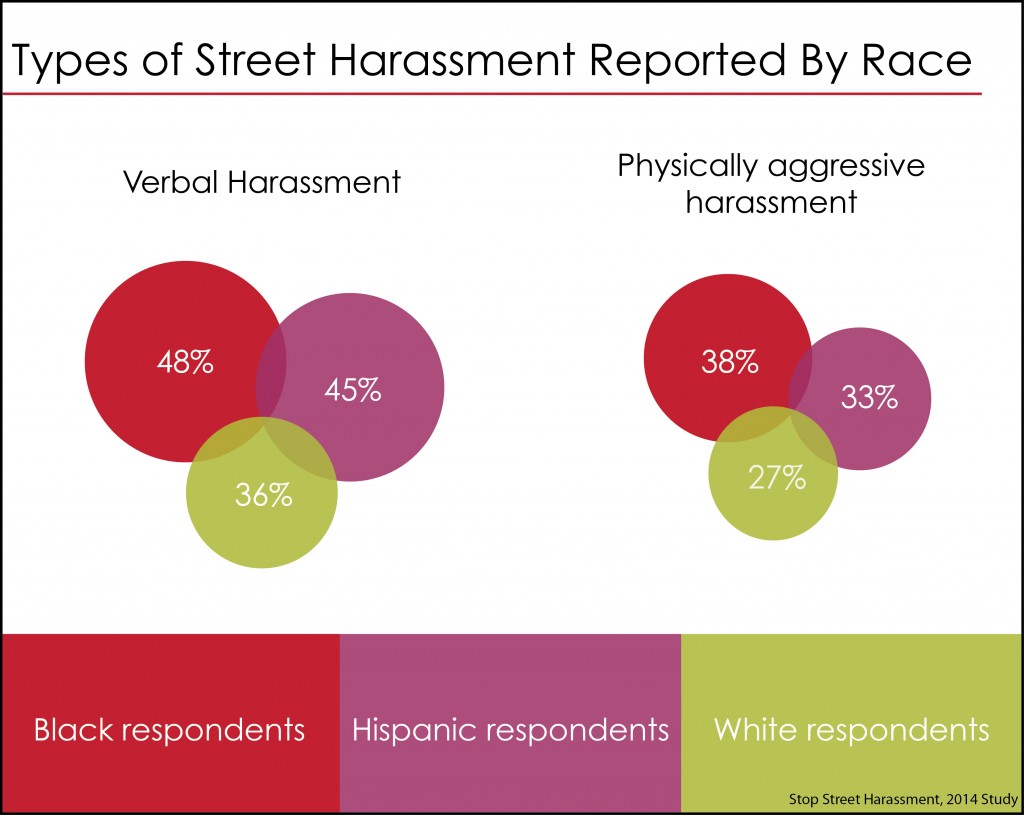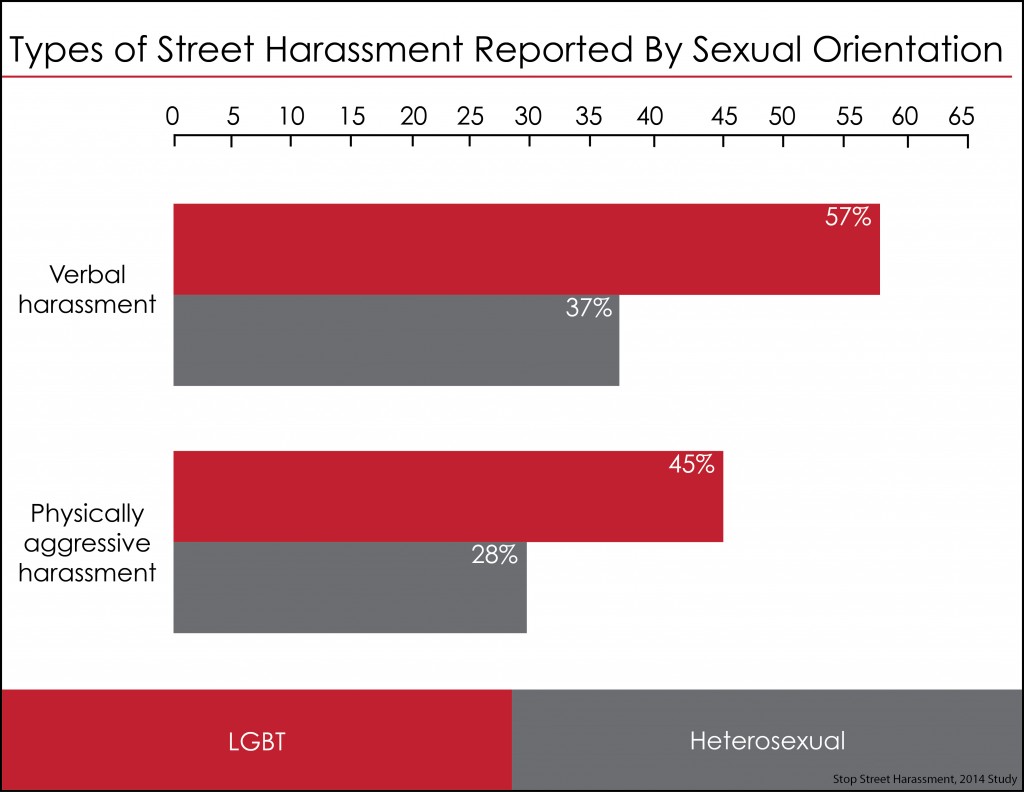Street harassment is the top story on The Today Show this morning and has been covered by every major media outlet this week.
So if you’re just learning about this issue and/or us, welcome. Here are a few quick things to know:
What it is:
Street harassment is any unwanted action or comment between strangers in public places that is disrespectful, unwelcome, threatening and/or harassing and is motivated by gender or sexual orientation or gender expression. It happens in every country and disproportionately to all women and to men in the LGBQT community.
It impacts harassed persons’ ability to navigate through and be in public spaces and thus is a human rights violation. It is part of the same continuum as sexual violence as it can escalate into it (and we never know when) and it can be retriggering for survivors of sexual violence.
History of the Issue:
Since at least the late 1800s, women have been speaking out and challenging street harassment. The term was first used in 1981 and the first website about it where women could share their stories launched in 2000 by the Street Harassment Project.
Women of color have led many of these efforts, in more recent times, they have done amazing work through the Rogers Park Young Women’s Action Team, Girls for Gender Equity, Stop Telling Women to Smile, Brooklyn Movement Center, the Window Sex Project, and #YouOkSis?
History of Stop Street Harassment:
This website began in 2008 to fill a gap in information/resources about the topic — it grew from my master’s thesis on the subject at George Washington University, which I began research for in 2006. I wrote one of the only books on street harassment in 2010, Stop Street Harassment: Making Public Places Safe and Welcoming for Women, and commissioned a nationally representative survey on street harassment this year.
What we Do/Get involved:
Currently, SSH does a lot of education and community mobilization work.
* You can share your story.
* You can find suggestions for dealing with street harassers as well as the relevant USA laws
* You can find information on being a male ally and how to talk to women with respect.
* You can find toolkit guides for taking action in your community on this topic.
* You can read articles from our blog correspondents in 9 countries to learn about the problem globally. (We will be recruiting a new cohort of correspondents in December.)
* You can get an update on the community projects our Safe Public Spaces teams are doing in this fall in 6 countries and DONATE to support the 2015 programs (and apply to be one of those programs in 2015).
* You can plan to participate in the 5th annual International Anti-Street Harassment Week.
* You can request me to lead a workshop or give a talk in your community, to your business, or in your school or community (in 4 years I’ve given 130+ talks).
* You can donate to support our work, which currently is largely done on a volunteer-basis and anything we do fund comes solely from individual donors.


